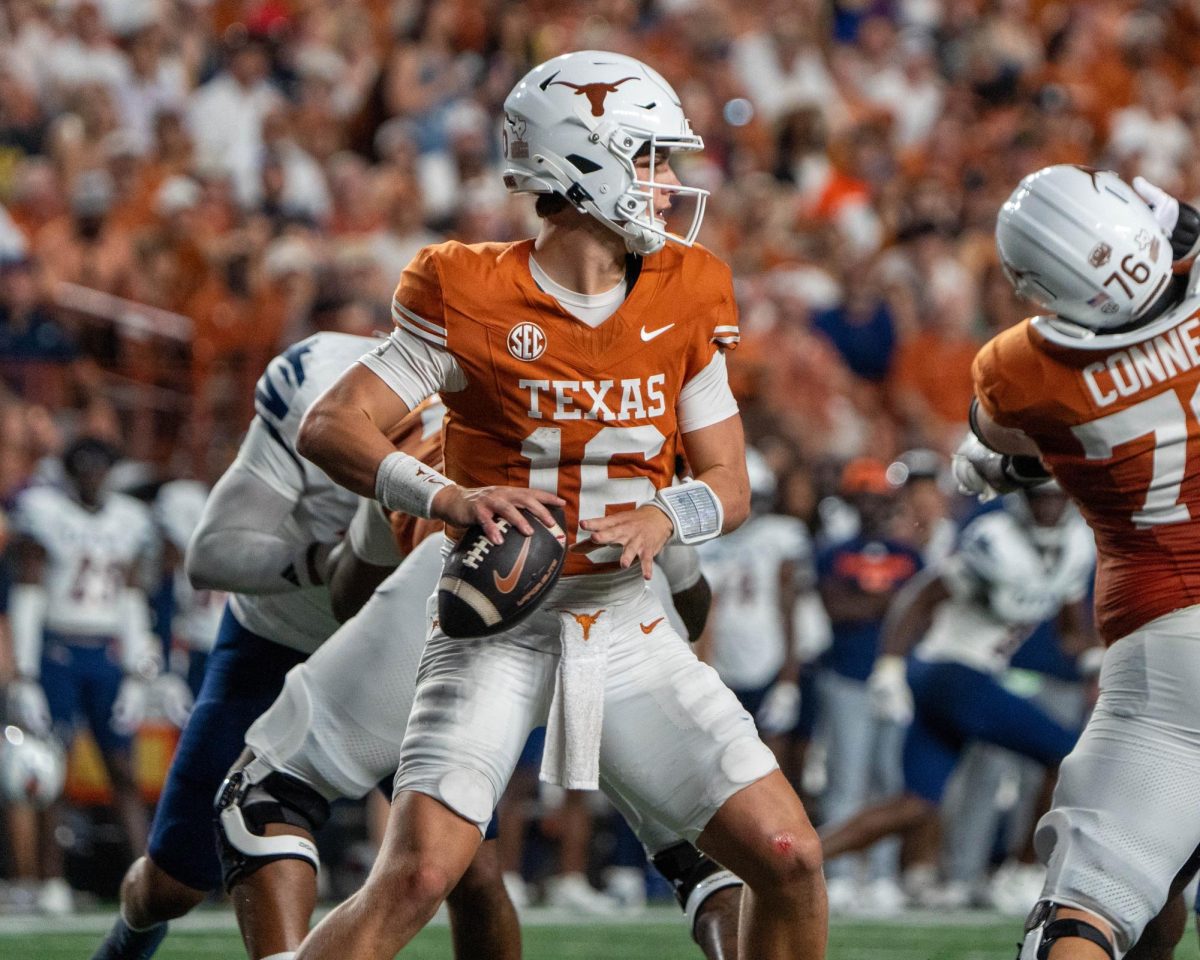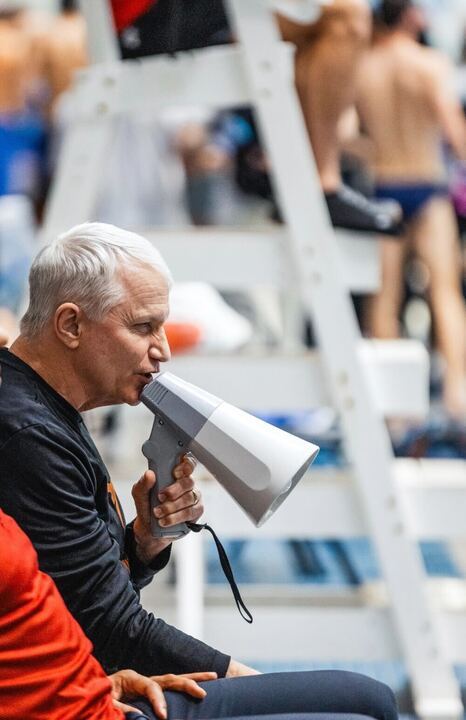“Texas doesn’t rebuild, it reloads.”
Perhaps you’ve heard the saying before. OK, you’ve definitely heard this saying before. Even this publication is guilty of perpetuating the statement that has become ingrained in the culture of Texas’ football program. So ingrained, in fact, that perhaps it is time someone recognizes it as both inapplicable to this season and potentially detrimental.
These negative effects are no more evident than in the demeanor of head coach Mack Brown during Monday’s weekly presser.
After giving his usual opening statements of depth chart changes and injuries to note, Brown sighed and waited for the questions to pour on.
“How do you stay focused after facing two top-five opponents in a row?”
“Do you think your team has an identity yet”
“Will we see a two-quarterback system again versus Kansas?”
“What is with the red-zone efficiency?”
And so-on and so-forth. In past years, Brown would’ve handled these questions with his usual charm and Mr. Fix it attitude. This year, it is evident that things are a bit more frustrating.
“We haven’t played well enough that we understand who we are, I think,” Brown said in response to a question asking about the Longhorns’ identity as a team.
“Each week we will just have to keep re-evaluating where the quarterbacks are,” Brown answered. “We could use [the two-quarterback system] until the end of the season.”
These answers seem fine enough on paper, but in-person Brown seemed, at least for the first time this season, noticeably tired and agitated by the bombardment of questions that still loom after Texas’ recent failures.
And why shouldn’t he be? The man has won 137 games as Texas’ head coach and has only lost 35 times. From 2001 through 2009, Brown won 10 or more games each year, marking the longest active streak of seasons with 10+ wins in the nation. Aside from last year, Brown has led one of the most successful and richest college programs of the last decade, and he’s had people applauding him all along the way. All the while, each time Texas lost a marquee player, it had another young pupil lined up to fill in where the last one left off. Colt McCoy replaced Vince Young, Cedric Benson eventually replaced Ricky Williams, and so-on and so-forth.
This is the first time Brown has ever had to take such a young squad on to the field. I don’t know about you, but reloading isn’t taking 20 underclassmen on to the field in the Big 12, now apparently home to the country’s Heisman-quarterback farm system. This is a full-fledged rebuilding.
This is tearing down the framework of the house Texas once laid ownership to and putting in more than just a new sink and a granite counter tops.
Brown seems to want the results faster than they are happening. He is a perfectionist that instilled a culture of winning at Texas, and is just now learning to pay the price that most schools around the country pay every four to five years when its time to restructure their organization. Surely, he knows more than you or I what this team needs to get better, but what he seems to have forgotten is that it is alright to fail a little bit before succeeding. Heck, ask Joe Paterno. He has had so many long-term bouts of success that it is easy to forget that the Nittany Lions were terrible after winning the Fiesta Bowl in 1997. It took them all the way until their 2006 Orange Bowl win to get back on pace with Paterno’s usual style of winning.
Give this squad two more seasons, and by the time it is older, it can restore Texas’ unprecedented status quo. But until then, a few more five- loss seasons may be in order.
Brown hasn’t failed at much during his tenure as Texas’ head coach, so its OK that he does.




















